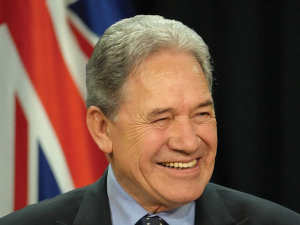News of the plan to improve trade with China came just days after PM Bill English announced plans for a new and ambitious trade strategy called Trade Agenda 2030.
Its goal is to have 90% of NZ exports covered by trade agreements by 2030 – well up from the present 53%. English says $91.3 million over four years will be spent on achieving this goal.
The plans include opening an embassy in Dublin, replacing representation by the NZ High Commission in London. And there will be a new High Commission in Sri Lanka.
Opening an embassy in Dublin is seen as a way to get closer to Ireland as a friendly EU member, important given Britain’s intention to exit. The embassy in Sri Lanka recognises NZ’s substantial and growing trade there.
About $20 million will go helping MPI contribute to raising the value of primary exports – especially in trying to reduce non-tariff barriers, which are generally ‘technical’ and difficult to negotiate.
Trade Agenda 2030 will have a ministerial advisory group to keep the public better informed about trade issues. The 23 member group will include people from all primary sectors and from tourism, Maori, trade unions, exporters and academia.











